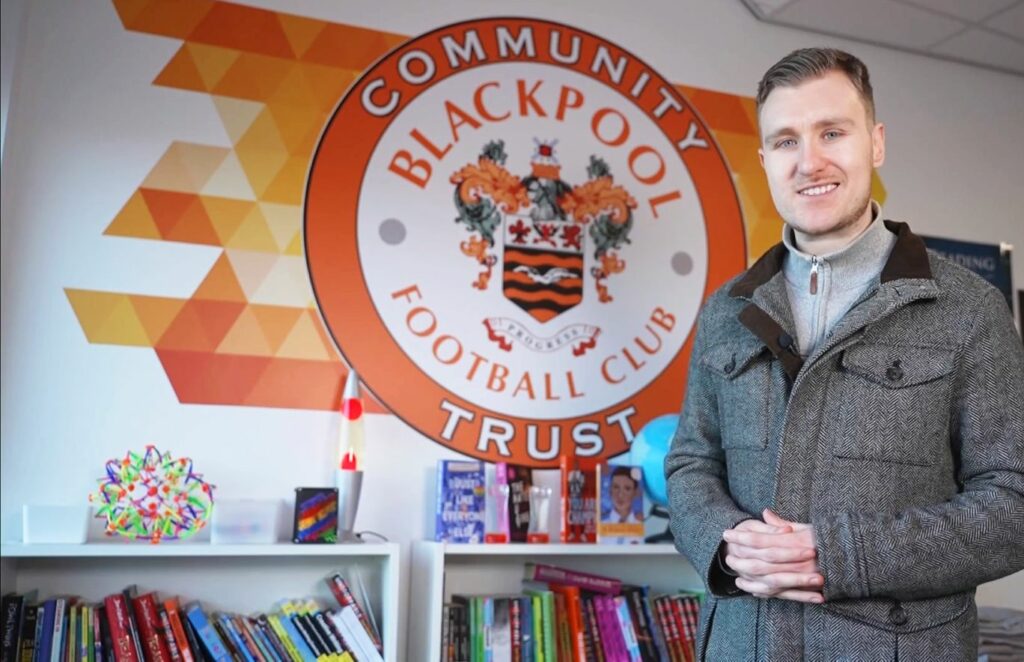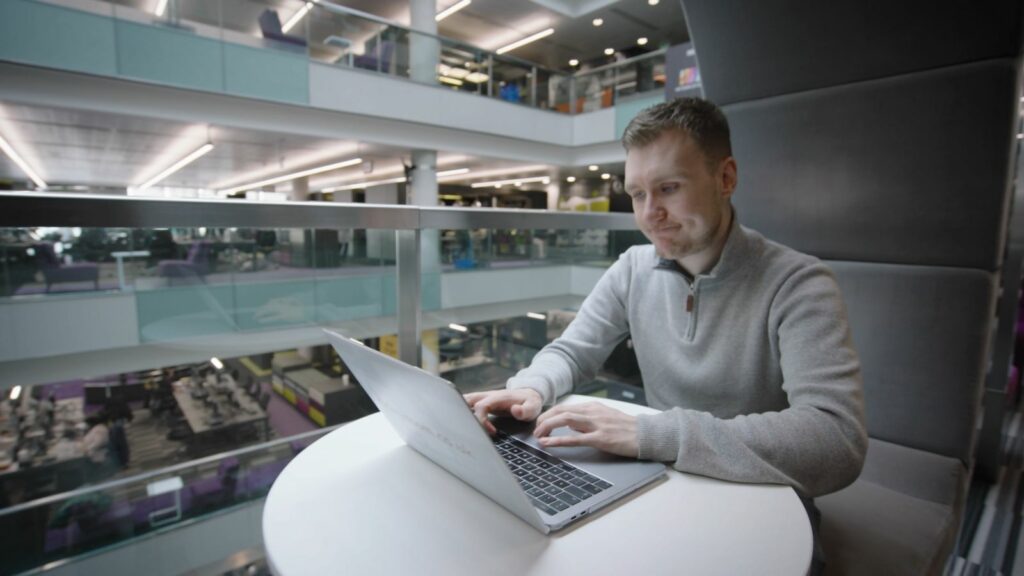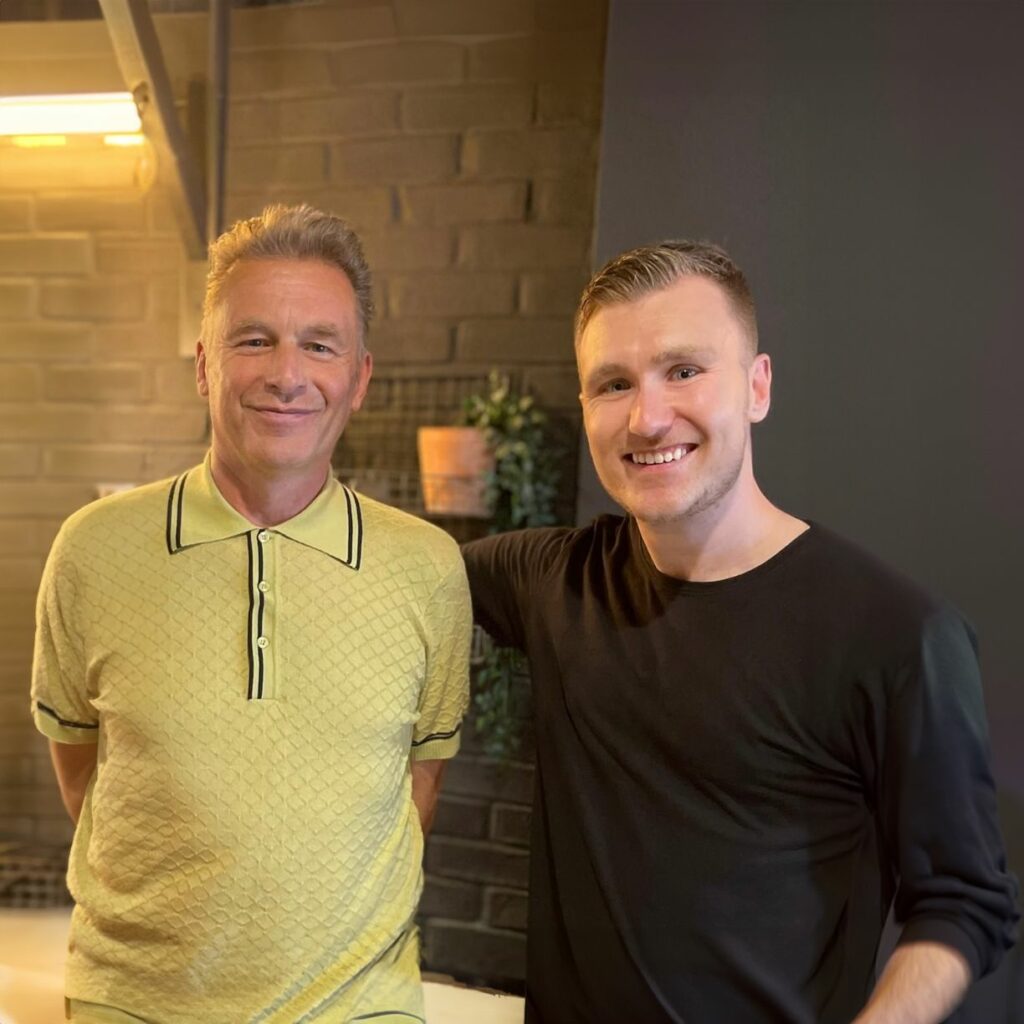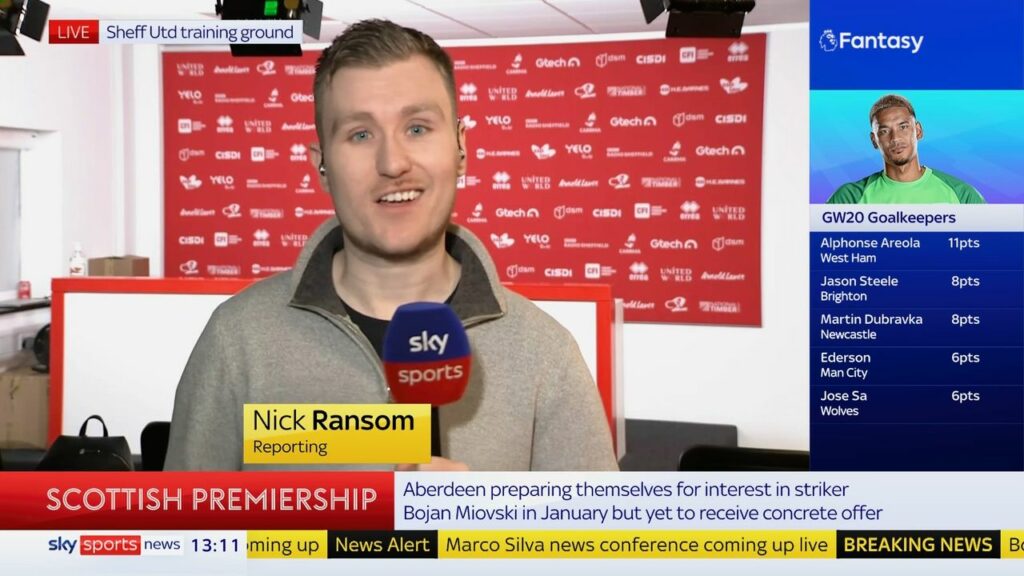“Change is happening”: Nick Ransom on neurodivergence in the sports media
Nick Ransom is leading the charge to put stories celebrating neurodiversity on the agenda in the sports media. Increasingly, headlines highlighting neurodivergent athletes are popping up in newsagents across the country.
But coverage remains patchy and nuances that are important in doing justice to the representation of neurodivergent stories can often be overlooked.
“I feel like I’m the only sports broadcaster or reporter to be talking about neurodiversity on air. There’s maybe one or two others, but there’s not really somebody championing the cause when it comes to sports media,” he says.

It is a topic that just a matter of years ago had barely seen the light of day. Yet now, one in five children are diagnosed as neurodivergent, which can include those who are autistic, dyslexic, dyspraxic or with ADHD, a stammer or Tourette’s.
Ransom is autistic himself and works as a journalist and neurodiversity consultant. He was recently shortlisted for the SJA Ones-to-Watch On-Air award. Now he is keen to tell the stories of the role models he never had growing up.
“It comes down to whether sports fans feel represented in the media that they watch. If you can boost someone’s morale about who they are while they are watching sport, then all the better,” he says.
“Diversity of thought is something that’s often ignored. Creativity, tactics, whatever it might be within sport, neurodiversity has a massive part to play.”
As a movement, neurodiversity refers to the idea that everyone has a different way of thinking. While increasingly accepted, Ransom knows better than many that resistance to this line of thought remains hard to shift.
“Often the average person in the newsroom doesn’t get how important equality, diversity and inclusion is,” he says. “If you’ve not been marginalised or discriminated against then you’re never going to see it as a particularly important issue.”
Ransom works as a freelance journalist, meaning that, to an extent, he can structure his work pattern to accommodate his needs. However, his work as a consultant is reflective of the shift he wants to see in the workplace.
He advises employers to be flexible in their hiring processes and to adopt reasonable adjustments in the office. This can include anything from job adverts not requiring applicants to be able to drive, to allowing journalists to sit at the same desk every day.

In this way, Ransom hopes neurodivergent journalists, who have previously been marginalised, can begin to bring new skillsets and experiences to the newsroom, contributing to a more diverse output. Though this in itself can prove challenging.
“It’s a cycle. You need media coverage out there about neurodivergence so [editors and producers] feel more confident in commissioning stories about it,” he explains. “But you also need athletes to feel like they can talk about neurodivergence. When there is this stigma around it, then you’re going to struggle.”
Ransom believes that stigma can be broken down by including more positive perspectives of neurodivergent athletes to create empowering role models.
“Neurodivergent people are made to feel like the condition has sat on top of them and they’re struggling to get out from under it. If we spoke more positively about what neurodivergent people could bring, then sport, society, employment, so many things would be so much better.”
Such is evident in his BBC Sport interview with Birmingham Phoenix cricketer Benny Howell which highlights the “out-of-the-box thinking” and “creativity” the bowler has benefitted from.
There is, however, a line to navigate. While positivity done in the right way can prove inspiring, an overly positive representation can paint a misleading picture that betrays the struggles neurodivergent people have to face because of society failing to accommodate them.

It was a line Ransom was keen to tread when he worked as an assistant producer on the award-winning ‘Inside Our Autistic Minds’ series.
“I was so conscious of being balanced and representative,” he tells the Sports Gazette. “You need to not shy away from the fact that neurodivergent people have real barriers and have real difficulties.
“Whether that’s through environments, through communication, or any other type of accessibility, it is absolutely fundamental that we reflect on those challenges.
“The reality is so many people consume media and don’t see themselves reflected. That warps your perception of yourself. It makes you feel absolutely terrible and like you’re not part of society.”
The stakes are high, then, in ensuring representation is authentic. Often it requires nuance in the way we use language to talk about neurodivergence.
Increasingly, “superpower” has become the buzzword spuriously linked to every article highlighting neurodiversity in sport. All too often, it can present a simplified perspective of athletes succeeding in the face of adversity.
“The word superpower is very subjective,” explains Ransom. “Some people really like the word because it makes them feel validated in terms of having strength, but it has become a bit of a cliche in terms of how we talk about it in the media.
“Often, it’s a throwaway comment. To me it’s not enough to just say, ‘Oh, it’s a superpower’. You need to pick a bit deeper at that.
“In terms of sports media, it’s the, ‘They’re overcoming adversity and that they’ve triumphed against all odds’. We need to move away from that narrative.”

Ransom is a keen advocate for identity-first language, preferring to describe himself as autistic. He feels person-first language, such as “Nick has autism”, suggests he is lacking in agency and burdened by autism.
The space and culture to implement these lessons is, however, being carved out and the media industry is becoming increasingly receptive. Journalists like Ransom are laying the foundations for sports media to benefit from all the varying perspectives neurodiversity can bring.
“Change is happening. There are more athletes who are starting to feel more comfortable talking about being neurodivergent. We’re in an exciting place going forward,” he smiles.
“I’m optimistic about what lies ahead. We love sport, but there’s so much that sport can do in terms of storytelling, media, society and inclusion.”
It is imperative that as these stories are told, the sports media do not lose sight of the nuances that turn athletes into role models and reflect the authentic experiences of neurodivergent people.
“It’s fundamental that the whole media wake up to talking about marginalised groups. The impact it can have on an individual and their self-esteem is huge.”
Ransom has built the groundwork for the industry to take neurodiversity seriously. It is up to the sports media to heed these lessons and produce inspiring narratives that remain true to the group they seek to represent.